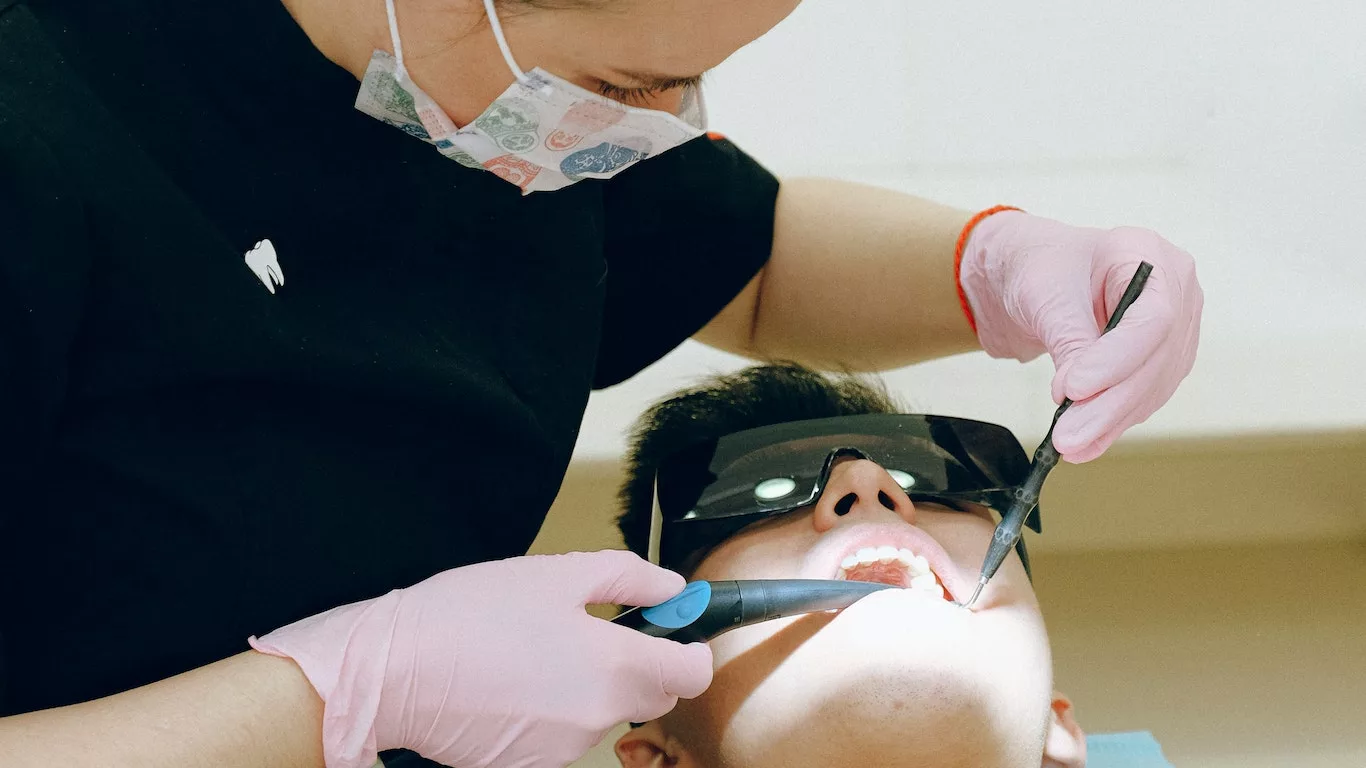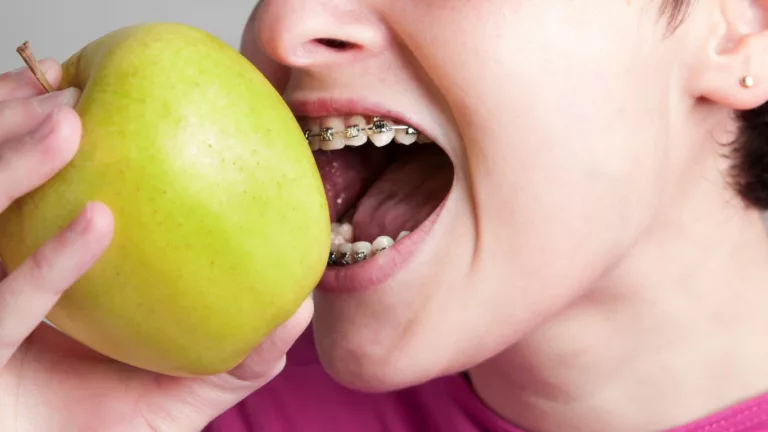The Power of Vitamins for Strong Teeth and Oral Health
Discover how vitamins like D, C, and K2 contribute to strong teeth and gums. Learn dietary sources and daily requirements for optimal oral health in this guide.
Having strong teeth isn’t just about aesthetics; it’s essential for our overall health and well-being. Teeth enable us to chew our food efficiently, which is the first step in proper digestion. Additionally, a healthy set of teeth contributes to clear speech and self-confidence. To maintain strong teeth and gums, a balanced diet rich in vitamins and minerals is crucial. This comprehensive guide explores the pivotal role of various vitamins in dental health and their impact on maintaining strong teeth and gums.
Introduction
Why Strong Teeth are Important
Strong teeth are your body’s first line of defense when it comes to breaking down food. Proper chewing is essential for effective digestion as it begins the process of breaking down food into smaller, more digestible pieces. Strong teeth also enable us to enjoy a wide range of foods, including fibrous fruits and vegetables, nuts, and lean proteins. Furthermore, they play a crucial role in speech and facial structure.
The Role of Vitamins in Dental Health
Vitamins are micronutrients that are vital for overall health, and they have a significant influence on oral health as well. They are responsible for supporting the development and maintenance of strong teeth, gums, and oral tissues. In this article, we will delve into the specific vitamins necessary for maintaining oral health and preventing dental problems.

Vitamin D and Strong Teeth
How Vitamin D Affects Tooth Strength
Vitamin D is a fat-soluble vitamin that plays a pivotal role in maintaining dental health. It helps the body absorb calcium, which is essential for strong teeth and bones. Additionally, vitamin D exhibits anti-inflammatory properties, which can benefit oral health by reducing the risk of gum disease and inflammation.
Food Sources of Vitamin D
The primary source of vitamin D is sunlight. When our skin is exposed to sunlight, it produces vitamin D. However, dietary sources also contribute significantly. Fatty fish like salmon and mackerel, fortified dairy products, and egg yolks are excellent sources of vitamin D. Ensuring an adequate intake of these foods is vital for maintaining strong teeth.
Recommended Daily Intake
The recommended daily intake of vitamin D varies depending on age, sex, and other factors. Typically, adults require between 600 to 800 international units (IU) of vitamin D per day. However, it’s essential to consult with a healthcare provider to determine your specific needs, as they may vary.
Vitamin D plays a crucial role in dental health. It supports the absorption of calcium, which is necessary for strong teeth and bones. In addition to dietary sources, getting regular exposure to sunlight is essential for maintaining optimal vitamin D levels. This vitamin also exhibits anti-inflammatory properties, reducing the risk of gum disease and oral inflammation. To ensure you’re meeting your vitamin D requirements, consult with a healthcare professional and consider dietary changes or supplements if needed.

Vitamin C and Healthy Gums
The Connection Between Vitamin C and Gum Health
Vitamin C, also known as ascorbic acid, is essential for gum health. It plays a critical role in collagen production, a protein that helps maintain the integrity of gum tissues. Without sufficient vitamin C, gum tissues can weaken, leading to gum disease and other oral health issues.
Foods Rich in Vitamin C
Vitamin C can be found in a wide range of fruits and vegetables. Citrus fruits like oranges, grapefruits, and lemons are well-known sources of vitamin C. Additionally, strawberries, kiwi, and bell peppers are excellent options for increasing your vitamin C intake.
Daily Vitamin C Requirements
The daily recommended intake of vitamin C varies depending on age and sex. Typically, adults need around 65 to 90 milligrams of vitamin C per day. However, smokers and individuals exposed to secondhand smoke may require higher amounts due to increased oxidative stress.
Vitamin C is crucial for maintaining gum health. It supports collagen production, which is essential for the strength and integrity of gum tissues. A diet rich in vitamin C can help prevent gum disease and other oral health issues. Remember to include citrus fruits, strawberries, and bell peppers in your diet to meet your daily vitamin C requirements.

Calcium for Tooth Enamel
The Importance of Calcium for Tooth Enamel
Calcium is a mineral that forms the foundation of tooth enamel, the protective outer layer of teeth. It’s also essential for maintaining strong jawbones. Without sufficient calcium, teeth become more susceptible to decay and damage.
Dairy and Non-Dairy Sources of Calcium
While dairy products like milk, yogurt, and cheese are well-known sources of calcium, there are plenty of non-dairy options available for those who are lactose intolerant or follow a vegan diet. Fortified plant-based milk, leafy greens like kale and spinach, and almonds are excellent sources of calcium.
Recommended Calcium Intake
The recommended daily intake of calcium varies depending on age and gender. In general, adults require between 1000 to 1300 milligrams of calcium per day. It’s important to note that calcium absorption can be influenced by factors like vitamin D intake and overall diet.
Calcium is a cornerstone of dental health as it forms the protective outer layer of teeth known as enamel. This mineral also contributes to strong jawbones. Ensuring an adequate intake of calcium through foods like dairy products, leafy greens, and fortified plant-based milk is essential for preventing tooth decay and maintaining strong teeth. Consider factors like vitamin D intake and your overall dietary choices to maximize calcium absorption.

Vitamin A and Oral Health
How Vitamin A Supports Oral Tissues
Vitamin A is essential for maintaining the health of mucous membranes in the mouth, including those that line the cheeks, lips, and tongue. It also plays a crucial role in saliva production, which aids in digestion and helps protect against oral infections.
Foods High in Vitamin A
Vitamin A can be found in both animal-based and plant-based foods. Animal sources include liver, fish, and dairy products. For those following a vegetarian or vegan diet, sweet potatoes, carrots, spinach, and kale are rich in beta-carotene, a precursor to vitamin A.
Adequate Vitamin A Intake
The recommended daily intake of vitamin A varies depending on age and sex, with most adults needing between 700 to 900 micrograms of vitamin A per day. Consuming a diverse diet that includes foods rich in vitamin A can help maintain oral health.
Vitamin A is crucial for maintaining the health of mucous membranes in the mouth and promoting saliva production. This vitamin plays a role in protecting against oral infections and supporting overall oral health. Whether you obtain it from animal-based or plant-based sources, including vitamin A-rich foods in your diet is essential for oral well-being.

Vitamin K2 and Dental Health
Vitamin K2’s Role in Teeth and Bone Health
Vitamin K2 is a lesser-known but crucial nutrient for dental health. It regulates calcium metabolism, ensuring that calcium is deposited in the bones and teeth where it’s needed, rather than in soft tissues or arteries.
Sources of Vitamin K2
Vitamin K2 is primarily found in fermented foods such as natto (fermented soybeans), cheese, and certain animal products. Incorporating these foods into your diet can support dental health by ensuring proper calcium distribution.
Recommended Vitamin K2 Intake
While specific daily intake recommendations for vitamin K2 are not established, it’s generally recommended to obtain it through a balanced diet rich in vitamin K2 sources. Ensuring adequate vitamin K2 levels can help maintain strong teeth and bones.
Vitamin K2 is a lesser-known but essential nutrient for dental health. It regulates calcium metabolism, ensuring that calcium is properly directed to bones and teeth instead of soft tissues or arteries. Fermented foods like natto, cheese, and certain animal products are excellent sources of vitamin K2, and incorporating them into your diet can contribute to maintaining strong teeth and bones.

Magnesium for Strong Teeth
Magnesium’s Contribution to Dental Health
Magnesium is involved in the formation and maintenance of tooth enamel, making it a key player in dental health. It also supports overall oral well-being by contributing to muscle and nerve function.
Dietary Sources of Magnesium
You can obtain magnesium from a variety of dietary sources, including nuts, seeds, whole grains, leafy greens, and dark chocolate. Including these foods in your diet can help ensure you meet your daily magnesium requirements.
Daily Magnesium Requirements
The recommended daily intake of magnesium varies by age and gender. On average, adults require between 310 to 420 milligrams of magnesium per day. However, individual needs may vary, so it’s essential to consider factors such as your overall diet and lifestyle.
Magnesium plays a vital role in dental health by contributing to the formation and maintenance of tooth enamel. It also supports various aspects of oral well-being, such as muscle and nerve function. Including magnesium-rich foods like nuts, seeds, and leafy greens in your diet can help ensure you meet your daily magnesium requirements.

Zinc and Oral Health
Zinc’s Impact on Teeth and Gums
Zinc is another essential mineral for oral health. It helps maintain the health of the oral mucosa, prevents the buildup of plaque, and supports gum health.
Foods Containing Zinc
Zinc can be found in a variety of foods, including oysters, red meat, poultry, beans, nuts, and whole grains. Incorporating these foods into your diet can contribute to maintaining strong teeth and gums.
Recommended Zinc Intake
The recommended daily intake of zinc varies depending on age and gender, with most adults requiring between 8 to 11 milligrams of zinc per day. Adequate zinc intake is crucial for oral health, and it’s essential to consider dietary sources and potential deficiencies.
Zinc is a vital mineral for oral health as it supports the health of the oral mucosa, helps prevent plaque buildup, and maintains gum health. Foods like oysters, red meat, beans, and nuts are rich in zinc and can be beneficial for your teeth and gums. Be mindful of your zinc intake, and ensure you’re meeting your daily requirements.

Other Nutrients for Dental Health
Phosphorus and Tooth Strength
Phosphorus is another essential mineral for dental health. It works in tandem with calcium to strengthen tooth enamel, making it a crucial component for maintaining strong teeth. Phosphorus can be found in various foods, including dairy products, meat, and nuts.
Potassium and Gum Health
Potassium plays a role in maintaining gum health by regulating the balance of minerals in your saliva. Foods like bananas, potatoes, and oranges are rich in potassium and can contribute to your oral well-being.
Iron and Oral Tissues
Iron supports oral health by preventing oral sores and maintaining healthy oral tissues. Red meat, poultry, beans, and fortified cereals are good sources of iron. Including these foods in your diet can help support your oral tissues.

Creating a Balanced Diet for Strong Teeth
Combining Nutrients for Optimal Dental Health
Maintaining strong teeth isn’t just about individual vitamins and minerals; it’s about creating a balanced diet that combines various nutrients. A diet rich in calcium, vitamin D, vitamin C, and other essential vitamins and minerals is crucial for strong teeth and overall oral health.
Meal and Snack Ideas for Dental Well-being
To help you get started on your journey to strong teeth, here are some meal and snack ideas that promote dental health:
Breakfast: Start your day with a bowl of fortified cereal topped with fresh strawberries and a glass of vitamin D-fortified milk.
Lunch: Enjoy a spinach and kale salad with grilled chicken for a vitamin A and protein boost.
Snack: Munch on a handful of almonds or walnuts for magnesium and phosphorus.
Dinner: Include a serving of salmon for vitamin D and calcium, along with a side of steamed broccoli for vitamin C.
Remember, variety is key to obtaining all the necessary nutrients for strong teeth. By combining different foods in your diet, you can ensure that you’re giving your teeth the support they need to stay healthy.

Practical Tips for Oral Care
Proper Brushing and Flossing Techniques
Maintaining strong teeth and gums requires proper oral hygiene. Here are some essential tips for maintaining oral health:
- Brush your teeth: Brush at least twice a day, using a fluoride toothpaste and a soft-bristle toothbrush. Be gentle to avoid damaging your gums and enamel.
- Floss daily: Flossing removes food particles and plaque from between your teeth and along the gumline, reducing the risk of cavities and gum disease.
- Use mouthwash: Rinsing with an antimicrobial or fluoride mouthwash can help kill bacteria and strengthen your teeth.
Regular Dental Check-ups
Even with excellent at-home oral care, regular dental check-ups are essential for maintaining strong teeth. A dentist can identify and address issues before they become more significant problems. Regular cleanings also remove plaque and tartar buildup that brushing and flossing may miss.
Avoiding Sugary and Acidic Foods
Sugary and acidic foods and beverages can erode tooth enamel and increase the risk of cavities. Limit your consumption of sugary snacks, carbonated beverages, and acidic foods like citrus fruits. When you do indulge, be sure to brush your teeth afterward or rinse your mouth with water.
In summary, strong teeth and gums are essential for both your oral health and overall well-being. By understanding the role of vitamins and minerals in dental health and making informed dietary choices, you can ensure the longevity of your smile and enjoy the benefits of strong teeth throughout your life. Incorporate a variety of nutrient-rich foods into your diet, practice good oral hygiene, and schedule regular dental check-ups to maintain optimal oral health. Remember that a healthy smile is a reflection of your commitment to overall wellness.

Appendices
References
- Song L, Sun L, Li X, et al. The Role of Vitamin D in the Oral Cavity. J Dent Res. 2012;91(4): 375-382. Read the study
- Arodiwe I, Chinawa J, Ubesie A, et al. Relationship Between Vitamin D Status and Dental Caries in Southeastern Nigerian Children. Int J Clin Pediatr Dent. 2014;7(2):74-77. Read the study
- Chapple ILC, Van der Weijden F, Doerfer C, et al. Primary prevention of periodontitis: managing gingivitis. J Clin Periodontol. 2015;42 Suppl 16(Suppl Suppl 16):S71-S76. Read the study
- Hujoel PP, Lingström P. Nutrition, Dental Caries and Periodontal Disease: A Narrative Review. J Clin Periodontol. 2017;44 Suppl 18(Suppl 18):S79-S84. Read the study
- Faria ML, Kozlowski VA, do Couto NRM, et al. Impact of a calcium-enriched diet on dental enamel in rats. J Appl Oral Sci. 2017;25(5):557-566. Read the study
- Abariga SA, Whitford GM. The Effect of Magnesium in Drinking Water on the Risk of Tooth Loss. Caries Res. 2016;50(6):552-561. Read the study
- Rathee M, Sapra S, Sharma M, Kumar A. Role of Vitamin A in Oral Health – A Review. J Oral Biol Craniofac Res. 2015;5(3):207-213. Read the study
FAQs
Q1: Can I get all the necessary vitamins for strong teeth from my diet alone? A1: In most cases, a balanced diet rich in various vitamins and minerals can provide the necessary nutrients for strong teeth. However, in some situations or dietary restrictions, supplements may be recommended by a healthcare professional.
Q2: How can I improve my oral hygiene for strong teeth? A2: Maintain a regular oral hygiene routine by brushing your teeth at least twice a day, flossing daily, and using mouthwash. Additionally, visit your dentist for regular check-ups and professional cleanings.
Q3: Are there any foods I should avoid for better dental health? A3: Sugary and acidic foods and beverages can erode tooth enamel. Limit your consumption of these and remember to brush your teeth or rinse your mouth with water after consuming them.
Table: Foods Rich in Dental Health Nutrients
| Nutrient | Food Sources |
|---|---|
| Vitamin D | Fatty fish (salmon, mackerel), fortified dairy products, egg yolks |
| Vitamin C | Citrus fruits (oranges, grapefruits), strawberries, bell peppers |
| Calcium | Dairy products (milk, yogurt, cheese), fortified plant-based milk, leafy greens, almonds |
| Vitamin A | Liver, fish, dairy products, sweet potatoes, carrots, spinach, kale |
| Vitamin K2 | Fermented foods (natto, cheese), certain animal products |
| Magnesium | Nuts, seeds, whole grains, leafy greens, dark chocolate |
| Zinc | Oysters, red meat, poultry, beans, nuts, whole grains |
| Phosphorus | Dairy products, meat, nuts |
| Potassium | Bananas, potatoes, oranges |
| Iron | Red meat, poultry, beans, fortified cereals |
Disclaimer
The information provided in this article is for informational purposes only and should not be considered a substitute for professional medical or dental advice. Always consult with a healthcare or dental professional for personalized recommendations and guidance regarding your oral health and dietary needs. The author and publisher of this article are not responsible for any adverse effects or consequences resulting from the use of the information presented.

Camellia Wulansari is a dedicated Medical Assistant at a local clinic and a passionate health writer at Healthusias.com. With years of hands-on experience in patient care and a deep interest in preventive medicine, she bridges the gap between clinical knowledge and accessible health information. Camellia specializes in writing about digestive health, chronic conditions like GERD and hypertension, respiratory issues, and autoimmune diseases, aiming to empower readers with practical, easy-to-understand insights. When she’s not assisting patients or writing, you’ll find her enjoying quiet mornings with coffee and a medical journal in hand—or jamming to her favorite metal band, Lamb of God.







